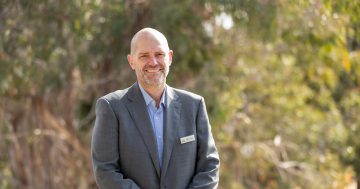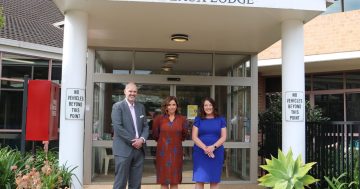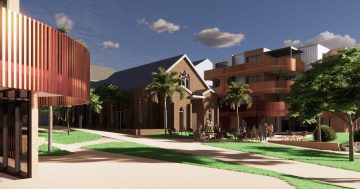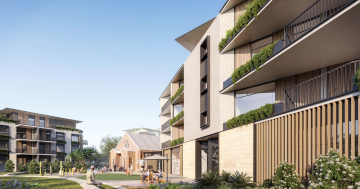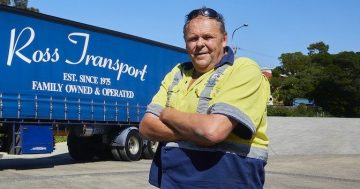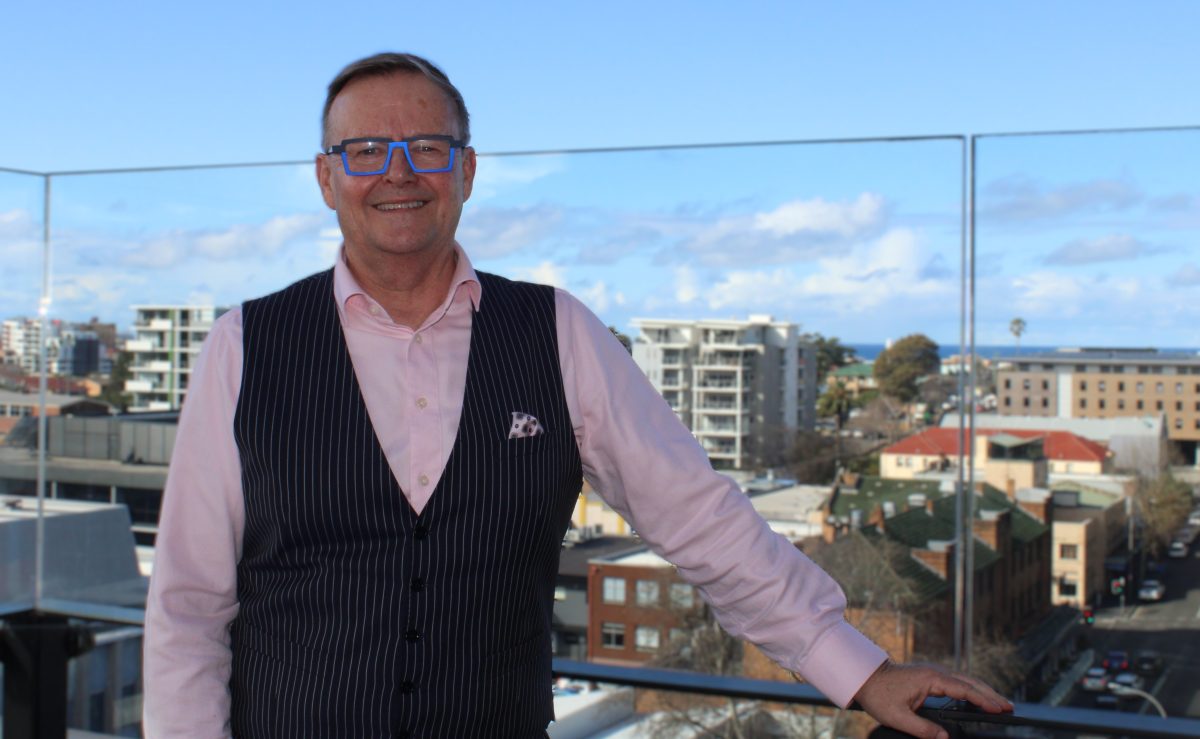
Ross Gallagher was officially appointed CEO of IRT after holding the interim position since May. Photo: Keeli Dyson.
IRT’s new CEO is bringing diverse experience and knowledge as he steps into the role, but Ross Gallagher is excited to learn from others and further connect to families, residents and those on the frontline as he shapes and executes the organisation’s vision for the future.
Mr Gallagher joined IRT in 2019 in what he expected to be just a short stint in a new sector.
Now, he is taking on the organisation’s highest position, guiding the group through times of change and growth across the sector.
“It’s been an interesting journey,” he said.
“I started off as a career banker; I then moved across and studied midlife in my 30s and got a couple of masters degrees, worked for a venture capital company, then worked for an IT business in the health services sector.
“From there I basically started here on a six-month contract and here I am six years later.”
Ross started at IRT as the Executive General Manager of Home Care before also having responsibility for retirement living.
He helped guide and shape the organisation during major events such as the royal commission and pandemic and worked alongside former CEO Patrick Reid to make ideas a reality, with his expertise in practicality and operations a strength he’ll bring into his new position.
“I’m still very curious and want to try new things where we think we can do things a little bit better, but also have the ability to pull that in a bit and operationalise it as well,” Ross said.
In his former role, he instilled the importance of connecting with those on the ground to better understand what was actually happening in the facilities.
“You’ve got to walk the walk and you’ve got to understand what it is like to live in their shoes,” he said.
“That’s something I’ve been passionate about since I started here and even with the leadership team from the homecare and retirement living business, ones who’ve had head office jobs, one of the key mandates from myself is that you’ve got to work on-site every fortnight.”
Building those relationships and learning from others firsthand, some of which have been part of the organisation for decades, is something that Ross hopes to continue as CEO.
“Finding the time will be the key thing but I actually love being on-site, so I’ll make sure I have time in my diary to spend out with the residents,” he said.
“You don’t learn anything sitting up here – you’ve got to be out there, talking to customers, residents and also the frontline staff.”
He’s now leading the company as it continues its mission to support older people in the community and figuring out how long-term aspirations can be achieved in the day-to-day.
“We’re in a really good position; we do have a strong foundation, so we’ve got the building blocks,” Ross said.
“In terms of where we’re heading, I think we’re in a really good spot to deliver but how we actually operationalise that and how we sequence everything will be the big challenge for us.
“One of the key things that I’m working on is a three-year rolling plan with a view that if you hit the three-year rolling plan you’re probably on track to look at the 10-year plan as well.”
These plans could also be impacted by ongoing changes in the sector including reforms in the home care sector, a new aged care act, as well as price pressures and regulations.
But it is also the change of preferences for an ageing population that need to be taken into consideration when shaping the future of services, with a shift towards in-home care and retirement villages rather than more institutionalised facilities.
“I think how we actually look at what our current build and strategy is trying to solve the issue of today but for the problem of tomorrow as well, so that’s always a bit of a challenge,” he said.
Those elements and attitudes will be factored in as IRT progresses and makes significant investments in legacy infrastructure and redevelopment projects as seen at its Woonona and Diment Towers facilities, as well as in how locations are designed and planned as IRT increases its offerings along the South Coast.
“As we look at moving further south into Milton and Moruya, allied health hubs where we can encourage people to come in, potentially even some general stores, things like child minding for the grandparents,” Ross said.
“Importantly, the further south we move things like staffing accommodation as well because finding accommodation for workers in some of those more remote areas is proving to be reasonably challenging.”
Seeing how these steps will improve lives is something that Ross is most looking forward to.
“The benefit that we can provide to the community, not just now but with what we have planned for into the future, I just find really, really exciting.”
To find out more about IRT’s services, sites and projects visit the IRT website.











